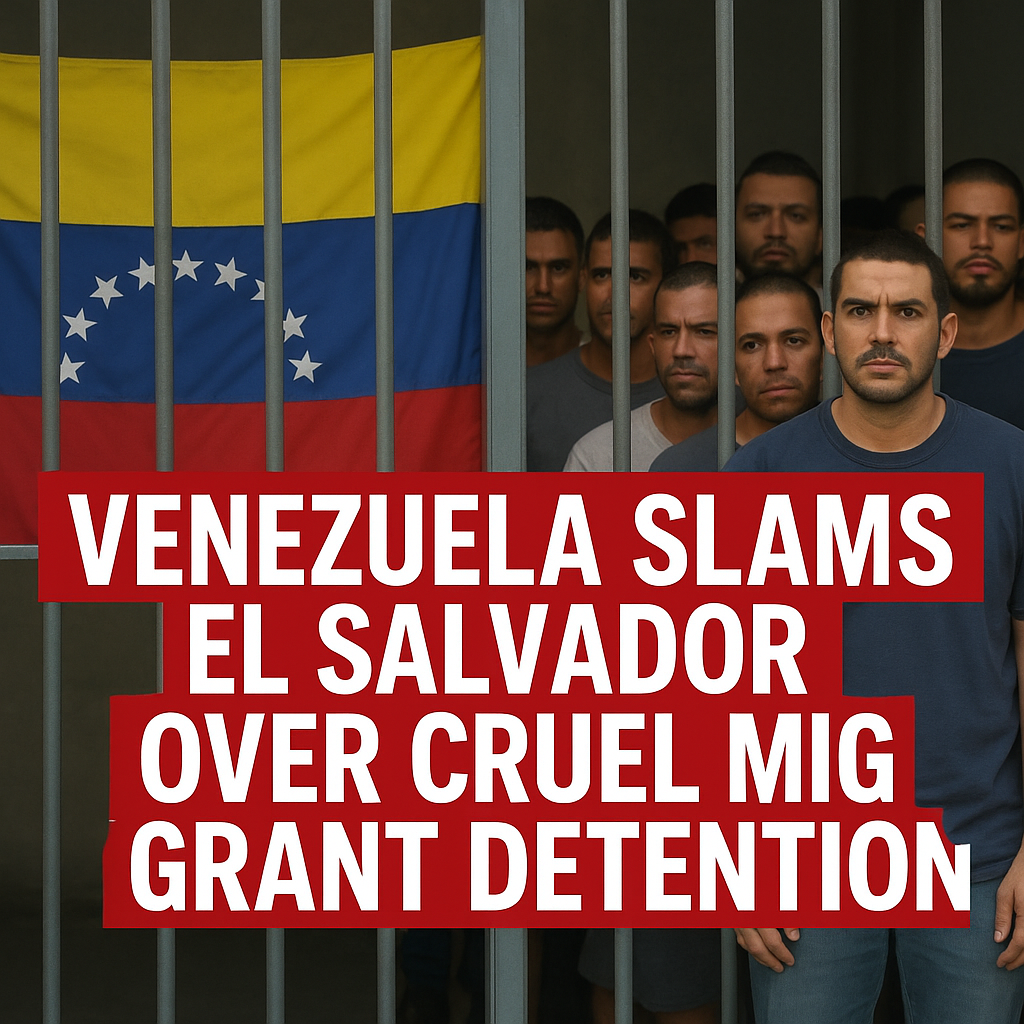A major argument has erupted between two countries—Venezuela and El Salvador—over the treatment of 252 Venezuelan migrants. These people had left their home country, hoping for safety and a better life. But instead, they ended up caught between political leaders and international disagreements.
Venezuelan Migrants Trapped Between Nations
The migrants were first deported by the United States to El Salvador. They were accused of being part of gangs or terrorism, even though there was little or no evidence. Upon reaching El Salvador, they were taken to a prison with extreme security. This jail is known for being very strict and is usually used for dangerous criminals.
El Salvador’s leader made a surprising offer. He said he would return all 252 Venezuelan migrants back to Venezuela. But there was a condition. In return, he asked Venezuela to release 252 political prisoners from its own jails. This idea was presented as a “humanitarian agreement.”
But Venezuela quickly rejected the offer. One of its top officials accused El Salvador of treating human lives like pieces on a game board. He said El Salvador was acting like a trafficker by keeping the migrants locked up in prison. He also said the country was violating human rights by treating innocent people like criminals.
Venezuela Agrees to Restart Deportation Flights Amid Intense Concerns
Accusations and Anger Between Governments
The two governments are now blaming each other. Venezuela says that El Salvador is acting cruelly and unfairly. It pointed to the fact that El Salvador has jailed more than 85,000 of its own citizens in recent years. Many of these people were arrested without fair trials. Some human rights groups have reported that over 360 of these prisoners have died while in custody.
Meanwhile, El Salvador claims that Venezuela has thousands of political prisoners. These people were arrested after speaking out against the government. Reports suggest that around 900 political prisoners are currently being held in Venezuelan jails. Many were arrested during the 2024 election when the ruling party took strong action to stay in power.
The offer to swap prisoners has shocked many around the world. Experts and activists say that this kind of exchange treats human lives as tools for political games. They say that using migrants and prisoners in this way is both unfair and dangerous. Some also worry that the deal was only made to distract the public from bigger problems in both countries.
US Investment Firms Trapped as China Regulator Blocks Billion-Dollar Panama Canal Sale
Migrants and Families Face Fear and Uncertainty
The people who are suffering the most are the migrants and their families. Many of the 252 Venezuelans who were deported and jailed in El Salvador have not been charged with any crime. They were taken from the United States and sent to another country, where they are now held without clear reasons. Nobody can predict how long they will be incarcerated.
Families back in Venezuela are heartbroken. One woman, whose husband is a well-known artist, said he has done nothing wrong. She described their situation as “evil” and said they feel like pawns in a game played by powerful leaders. These families left Venezuela to escape fear and poverty. Now, they are stuck in a worse situation, far from home and unable to help their loved ones.
Even the Venezuelan opposition is struggling with how to respond. Many of the migrants support the opposition, but the political leaders have stayed quiet. Some experts believe this is because they want to stay on good terms with the U.S. government. They are afraid that speaking out could hurt their chances of getting support to challenge Venezuela’s current leadership.
China’s Veiled Warning to US; WZ-9 Drone Could Detect F-35 and B-21
This silence has caused anger among many Venezuelans. The very leaders they previously trusted seem to have abandoned them. The situation has now become a huge problem for everyone involved. Migrants are locked up in foreign prisons. Their families are desperate for answers. And two governments are using their suffering in a public fight, while refusing to take responsibility.

